SERP Monitoring: What is It and Why It Matters
Do you know the name of the web environment that allows you to come together with your target audience in the digital world? Let’s say: Search engine result pages. In other words, SERP or SERPs. Nowadays, we give this name to the pages where search engines show the closest and most relevant results to different user queries. Therefore, the way to leave your competitors behind by standing out in front of the querying users with priority is directly from here: through a powerful SERP monitoring service.
Today, ranking data is one of the most important tools to understand your position in the marketplace by managing your visibility in the digital world. Since keyword rankings are affected by everything from technical SEO work to content strategy, from link building studies to pagespeed optimization, it may be a good idea to analyze your total SEO success on behalf of the statistics you get.
Try for free to boost your website traffic!
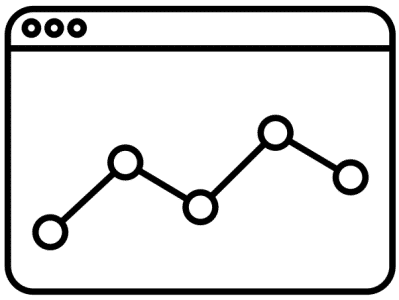
Based on the information we have received from Screpy experts today, we will talk with you about why you need powerful SERP monitoring and what this type of service should encompass. If you’re ready we can get started!
What is SERP?
SERPs, also known as search engine result pages, are areas where search engines aim to rank the sites that give the most efficient response to the user’s query, personalized according to each user or each search.
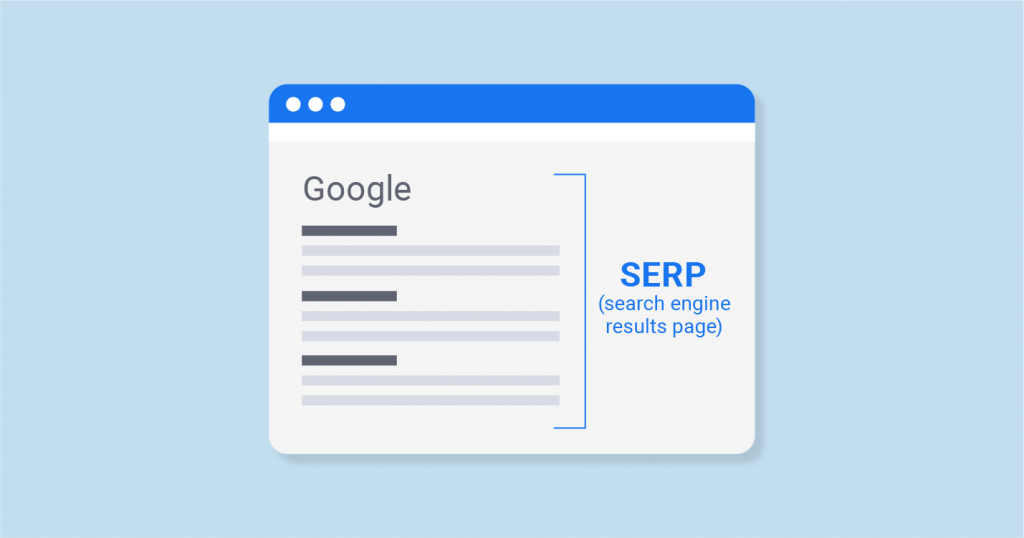
- Today, there are both organic results and paid results within a standard SERP page. These paid results are displayed according to the search engine ads given within the framework of the pay-per-click system.
- Organic results are ranked within the framework of SEO studies of websites, content strategies, relevance of content with keywords and many more.
Google and other search engines care that SERP can deliver the maximum UX to users. That’s why it is extremely important to rank sites that give users what they are really looking for. In fact, almost all of the SEO work done is meant to say to Google – or other search engines – “this is the place to deliver what the user is looking for in the most effective and relevant way“.
What We Have on SERPs?
Today, all of the following content types can be found in a standard SERP:
- Google ads: These are the areas where Google paid ads are published.
- Featured snipped: These are the areas where users can briefly get the answer to their query without the need to click on any website on the SERP. These fields can be presented as listing, paragraph, image, or video. Provided with an algorithm different from the standard keyword ranking, featured snippets give the user the briefest answer to their query and are usually shown in long-tail keyword searches.
- Image pack: It is the field where the images matching the searches of the users are sorted.
- Organic results with in-depth articles: It is the standard ranking area where the detailed content you provide for users is listed as web pages.
- Knowledge chart: Knowledge charts, which are usually encountered when querying a concept, an important historical personality, or a location, are activated using 3.5 million data points.
- Local pack: Through Google Maps, we can call the “nearby businesses” list shown to users in local inquiries as a local pack. Typically, when you search for a business name, Google ranks the closest businesses to your location in this field.
- People also ask: This area, where users’ other questions similar to the related concept or question are listed, shows the short answer to each question when you click on it.
- Shopping results: These are the results that direct users to the relevant e-commerce site in inquiries for direct purchasing purposes, usually containing product images and price information.
- Tweets, Videos, and More: The results of some searches can be displayed on the SERP as a direct tweet or a Youtube video.
If you want to have a deeper look to SERPs, go to related article called ‘’What is SERP?’’
Why Does SERP Monitoring Matter?
Performing SERP monitoring regularly is one of the best ways to understand which SEO and content strategies you are implementing are working and which are smart, and which are not.
Regular content entry, the use of the keywords you have set in certain content, the improvements you have made in technical SEO, the site authority you have increased thanks to the link-building, and much more, ultimately must show its effect on your keyword rankings. If there is no improvement in the ranking despite all this, something might be wrong.

This is not all.
Did you know that Google makes 500-600 different updates within a year and it aims to present what the user is looking for in the most appropriate way with these updates?
More than fifty percent of websites today are experiencing changes in certain keyword rankings due to new Google updates. Tracking Google updates, along with the impact these updates make on your ranking, gives you important hints on what to do to keep up with the most up-to-date requirements. You will also have the chance to implement these step by step and make the optimization “goal-oriented”.
Let’s take a look at what you can gain from taking SERP monitoring services.
You Get the Chance to Watch Your Competitors’ Progress
The best way to keep your position in the industry or to rise is to keep track of your competitors, right?
Let’s create a scenario:
You are in second place in the SERP in the ”best sports shoes models”. A competitor is right behind you, in third place. Within the framework of your regular SERP monitoring activities, you have noticed that your competitor has risen to first place and makes you to regress to third place. What will you gain by realizing this, have you ever thought?
- Find out what’s changed in your competitor’s content strategy – It obviously worked great, folks!
- Could the site design be redesigned?
- They changed something in product and categorization, and maybe it worked for them a lot?
- Could they have done a link-building work on a powerful resource?
- The “increased ranking alert“, which allows you to find the answers by asking the questions above, increases your competitive power in the sector. As soon as your competitors take action, you understand what they are doing right or wrong and you take action. In this way, you manage a perfect optimization process that never loses time.
What Do You Do By Tracking Your Competitors’ Keyword Ranking?
Here are the advantages of tracking keyword rankings of your competitors:
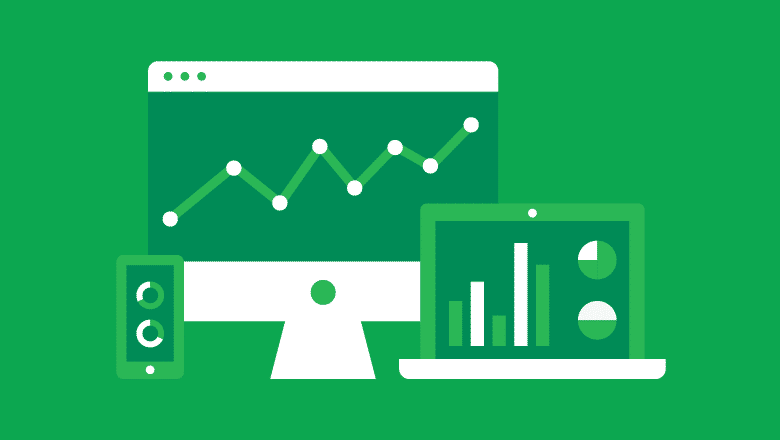
The ranking factor in SERP is not the same for every sector!
What is the main factor for SEPR ranking in your industry? For example, if you are publishing evergreen content, the scope of the content and the fact that it has direct responses to all the necessary questions on the relevant topic are important to rise in the SERP rankings. But if you run a news site, keeping the content up-to-date is one of the most important ranking factors. So, what are vertical-specific SEO insights specific to your industry? Explore and thus develop a correct content sharing strategy.
Get Aware of New Players in the Market!
If you do regular keyword tracking for your competitors, you will also discover and be aware of sites that are rising step by step and are about to become competitors for you. In this way, it becomes easier to develop strategies that will compete with them better. Don’t waste time!
Never Miss The SERP Updates!
Is there an update on SERP ranking? The sudden change in the rankings is the best indicator of this. A user who performs regular SERP checks is the user who is the earliest to be aware of the algorithm. This means that adaptation happens faster.
Track Your Development in Specific Keywords with SEPR Monitoring
A powerful SERP monitoring service, of course, allows you to constantly track keyword rankings of not only your competitors but also your own site. Do regular tracking of all the keywords you target on your site and on which you do content, link-building work, from long-tail keywords, from general and high search volume keywords to branded keywords. Densifying your tracks can be perfect for examining the unique result of a specific method you have been actively using lately. But remember, you may not see the results of your studies on the same day. Give Googlebots some time.
Test Your Website Issues
You can quickly analyze your site
What Do You Do By Tracking Your Site’s Keyword Ranking?
While a powerful SERP monitoring tool enables you to analyze your own site, it should be able to offer you the following:
With Historical Data, you are in control of all time!
It is very important that you know your current ranking in keywords, okay. But there is another important thing: historical data about the ranking progress. In this way, you can understand which update is throwing you back a little, which optimization work has become stronger, or how long you have been in the same ranking, so you can increase your control over the process. Historical data is therefore very important.
You learn about SERP visibility
Have you had a sudden increase in traffic lately? It is very important to understand whether this is from organic results, a link-building work you do, or SEM work. In this way, you can keep the methods that work in your pocket while throwing the ones that do not work aside. Therefore, it is extremely important to check your keyword ranking and understand the situation in case of increasing traffic. We offer a comprehensive tracking service for each keyword via the Screpy keyword tracking tool.
Hey, you heard it right: It is possible to easily discover both your own SERP position, which pages belong to the top 100 ranking in this word, and who are your competitors in front of you and behind you in this word through Screpy SERP monitoring services.
SERP Monitoring is Not Just a Keyword Tracking Process: Exploring Changing Trends
When you think of SERP monitoring, you may first think of the idea of ”tracking the ranking you are in a certain keyword“. OK, that’s right. SERP monitoring always provides this. But this is not the only scope of this service and it should not be. A powerful SERP monitoring is a service that provides you with up-to-date data on search trends and what users expect from SERPs, and enables you to develop up-to-date strategies in the light of this data.
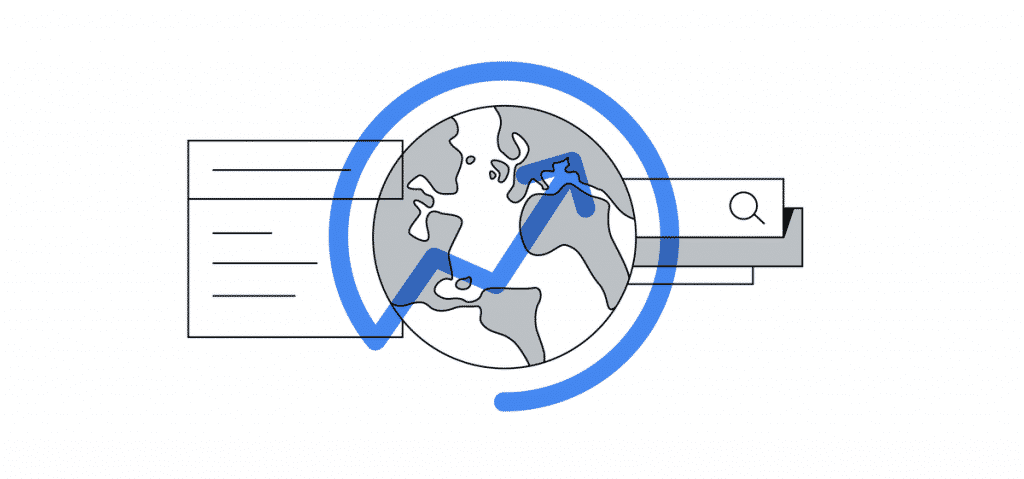
Remember what Google Trends is doing: It easily shows the historical rates of trending of a particular keyword and provides information on current search volumes. Especially if you have a website that you want to respond to up-to-date searches, for example, if you have a blog page about the world of technology or a platform where you share your DIY ideas, it is very valuable to examine these trends and address the increasing traffic in these trends as soon as possible.
We, as Screpy, offer you exactly this thanks to our system that synchronizes with Google Trends. While presenting the statistics of the ranking of you or your competitors in the keyword you have determined, it also shows the recent interest in the same keyword with an understandable graph.
This helps you get to know your target audience much better and interpret the changes in traffic you receive.
Discover Your Target Audience’s Behaviors on SERP with SERP Monitoring
We said that SERP is your main meeting point with your target audience, right? So, who are the most frequent visitors to this meeting point? In other words, from which location do they mostly search for a particular keyword?
It may be good to know the geographic regions in your industry where searches are made more frequently so that you can target keyword that appeals to a specific geographic location. This is something you can achieve with SERP monitoring services.
Let’s create a scenario then:
What if you’re targeting a keyword like the ”best Turkish Coffee”. Wouldn’t it be great to find out which region they are most searching for this keyword and accordingly try to understand who will appeal to other food or exotic products you offer? In this way, you can choose the geographic location in question for your other advertising campaigns and help increase your CTR rates. What’s more, understanding who you appeal to mostly in the SERP and whom you address can determine your multiple strategies, from deciding for which countries to offer additional shipping free campaigns on an e-commerce site, for example.
Remember, keywords are the way users search for you. Therefore, SERP is the best way to understand your target audience.
Get Your Keyword Suggestions and Rank Higher
Google and other search engines scan millions of different web pages in detail. If we consider utopianly that the technical features of all of them and the experiences they provide to users such as pagespeed are equal, what would Google choose?
Have you ever heard of the word ‘’content is the king’’?
Of course, the ranking would take place according to the scope and relevance of the content.

That’s why you need Googlebots to make sure that the information or service users are looking for is on your page. It is not enough to target just one keyword to do this. Instead of focusing on a single keyword, try its semantic versions, long-tail versions, other word combinations that the same users are looking for. It is important to decide on what to talk about during writing your content. These targeting will help Google consolidate its knowledge of what’s on your page. Moreover, you will be more likely to come across users who make a query with a specific search (usually searches with a long-tail keyword): with featured snippets or with a strong ranking.
Getting All The Potential Traffic Related to Spesific Keyword
- We have talked about semantic keywords. But what are these?
These are keyword alternatives that are similar to a specific keyword or have the same meaning but may consist of different words.
Let’s screate a scenario:
For example, if you are targeting the word “cup”, you can also target the word “coffee glass”. These are structurally completely different from each other, but users with the same purpose are likely to use two different keywords. Semantic keyword targeting adds the following to the SERP monitoring process: While you have a perfect ranking in a keyword, you may not be able to reach a serious audience who searches for that keyword with different words. The relevant keyword suggestions that your SERP monitoring tool will give you will eliminate this problem.
- Do you know what long tail keywords are often presented in keyword suggestions?
Keywords that consist of three or more words and are used to get a specific response in SERPs are called long-tail keywords. These keywords are often encountered in question sentences. Imagine examining your particular keyword rank while getting SERP monitoring service. When you see long-tails among the relevant keywords, it allows you to start targeting them, maintain your order and occupy the space you demand on more fronts.
Let’s screate a scenario:
For example, you have discovered your ranking in the word ” cup ” and started targeting the ” best budget cups ” keyword you see in the relevant keywords list. Standing out in this word with your strong content strategy will mean largely guaranteeing that a specific group of your target audience will shop from your site.

Seeing Top 100 Results of a Specific Keyword – Organic Research Position Report
Another thing that SERP monitoring services can offer is to see the ranking of the sites you choose on a specific keyword you choose, as well as seeing the overall 100 rankings on that keyword.
But what exactly will it take for you to discover the “top 100”?
We begin to explain, be ready:
Imitate the strategies of the top ranking sites. Examine what they are doing right and devise a smart strategy accordingly.
- What content do they publish?
- What are the heading styles they use in their content?
- Do they use various fields such as faq, table of contents in their content?
- In what direction do they do link building work? – Did you know that you can also do this analysis via Screpy?
- What are the pagespeed values of the site?
- If we are talking about an e-commerce site, are there any features that make the site safer or more convenient to buy than others? 3D payment, SSL certificate, breadcrumbs that facilitate navigation or much more may have caused Googlebots to mark the site as more reliable or easier to navigate. You should examine all the details of these sites, from the categorization to the checkout pages.
Which Keywords Should You Analyze While Monitoring Your Competitors’ SERP?
We have prepared a keyword scanning guide for you to find the keywords that provide you with the best understanding of your competitors’ progress and content strategies. Here are keyword alternatives you should choose while analyzing your competitors’ keyword ranking:
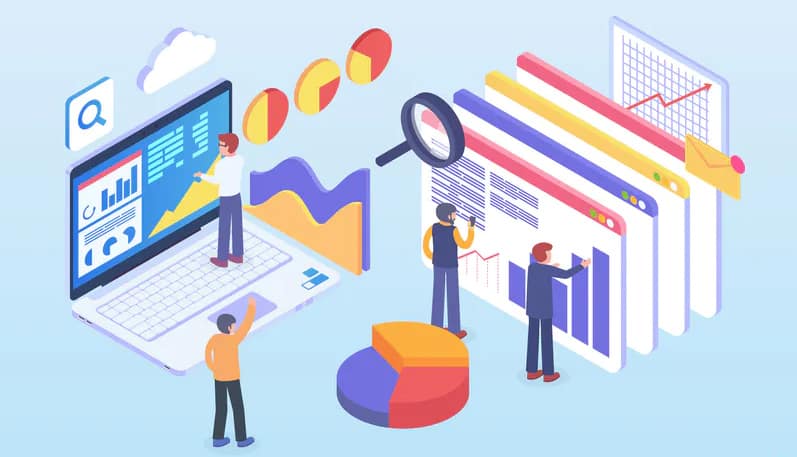
Branded keywords
See how your competitor stands in words that carry your brand name or directly include the names of your products. If you have a rising rival in these words, you need to notice it right away and understand what it does differently. It is very important that you are at the top especially in branded keywords. However, the fact that some brands have a very general brand name may prevent them from ranking the highest in branded keywords. So if you have a project just starting out, maybe you need to review your brand name as well.
Purchase-focused keywords
Searches on the SERP can have multiple purposes. Millions of users search every day to get information, browse the internet world or buy a specific product. What you need to do, especially if you own an e-commerce site, is to make the ranking of your competitor and you on keywords for purchase purposes. SEO is really important for these keywords. Conversion and sales rates may depend heavily on these rankings.
Highly converting keywords
Some words or phrases do not directly include purchase-oriented keywords such as “buy” or “purchase”, but at the end of the job, individuals searching for these phrases are more likely to convert. For example, a user searching for “trending baguette cluches” might come across a post on your e-commerce site. This post may provide sincere fashion advice, directing users with a link to related cluch bag products. In this way, this word turns into a real treasure in terms of conversion and sales rates it offers. Understanding how your competitors are performing in terms of these keywords can be really useful for solving digital marketing strategies by discovering where their sales rates come from.
Sharing Analytics and Work Together with SEO Monitoring Tool of Screpy
Did you know that Screpy SERP Monitoring tool has all the features mentioned in all content? We also prefer to directly call it the keyword tracking tool. With this tool, you will be able to make detailed optimizations by constantly examining both your important competitors in the sector and your own site.
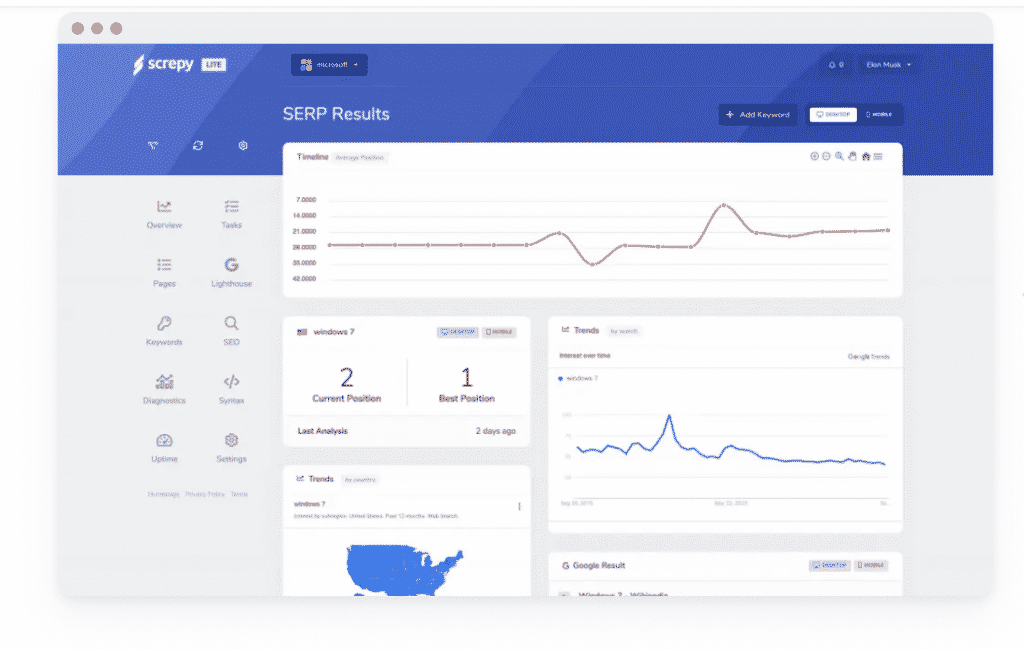
We, as Screpy, are proud to be the new workspace of your office and your team! You can easily share the results of your analysis with your colleagues or customers as a report. In this way, it will be much easier to develop a strategy and hold meetings with detailed visualizations. For SEO experts, e-commerce experts, and anyone who wants to increase their competitiveness by using expert tools without being an expert!
FAQ
What does SERP stand for in marketing?
SERP means search engine result page or search engine result pages. This concept, which can be used for every search engine, is the name given to the pages that users encounter after their queries and contain millions of different results.
How do you rank higher in SERP?
You can achieve a better ranking in SERP with powerful search engine optimization studies, pagespeed monitoring studies and strong keyword targeting. You can use SERP monitoring tools to learn the ranking you have and to follow the developments within the framework of optimization studies.
How do I check my SERP?
If you want to find out the SERP position of your website on a specific keyword, simply use Screpy’s keyword tracking tool. This tool provides historical data on ranking and also ranks the top 100 web pages for that keyword. In this way, you will be informed about the current status of the digital industry.
How do you do a SERP analysis?
Very simple! Take advantage of Screpy’s 7-day free usage option right now and perform SERP analysis for free. You can also do SERP analysis by purchasing our paid packages.
Test Your Website Issues
You can quickly analyze your site